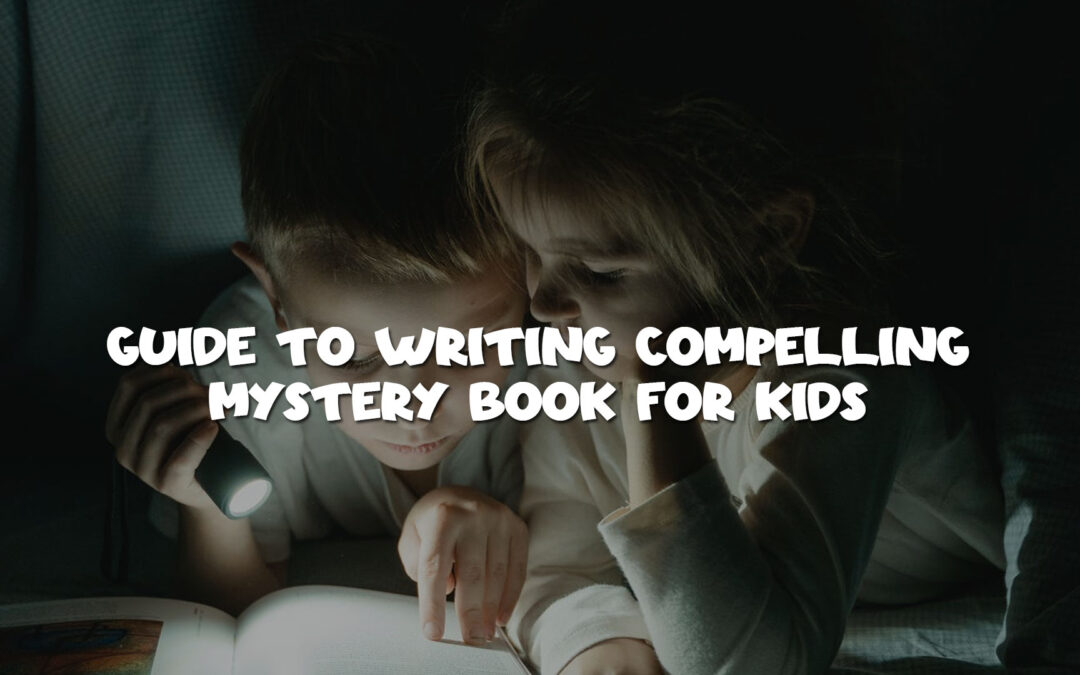Guide to Writing Compelling Mystery Book for Kids
It’s the thrill of unraveling hints and clues that makes mysteries so enjoyable to read. Mystery books for children are filled with adventure, challenge, and tension, which can stimulate children’s imagination. This aspect can help foster the cognitive and social development of a child. Moreover, mysteries encourage children to ask questions that motivate children to seek out knowledge, cultivating a love for learning.
Reading mystery fiction is thrilling, and writing it can be just as much fun, especially if you are writing for the little ones. If you are planning on coming up with one, here’s a complete guide to writing a compelling mystery that kids will love:
Plot Before Starting Your Writing Process
You need to know what happens for the rest of the book, making the actual writing process easier. This will also enable you to subtly insert clues because you already know where your story will end up. Essentially, it’s about how you insert information that will be prominent in the plot. You also have to remember to create a simple plot for the young ones. But this all depends on the target audience of your book. It would be best if you established what age group your story is most suitable for.
Make Your Story Relatable
In every literary masterpiece, most authors would definitely agree that relatable narratives are the ones that can effectively capture the reader’s attention. No matter what genre, the sense of belongingness should still be evident, especially for younger readers. When they find that it suits their interest, the more they will become eager to finish reading the whole book. Once you figure out a specific age bracket for your target audience, you can make the characters have the same age as them.
Include a Detailed Setting
Kids would prefer to have a detailed setting to get a clear picture of the world that you have created for them. Thus, it would be essential to develop great descriptive writing skills. This will be very useful in stimulating the minds of the little one. First, you need to make sure that you are using dynamic words. In mystery books, kids are expecting to have a reading experience full of action and adventure. Thus, you need to make sure that you are choosing words that have movement over static words. So, when choosing verbs, use those that are active. The second point would be choosing the right point of view and promoting character development for your storyline. Character development is aided by showing the world through the eyes of a character’s subjective point of view, which indicates how they feel about things.
Choose Non-Violent Issues
Most mystery books have underlying social issues involved, which are very complex. For children’s mystery stories, the problem does not have to be big. You can’t have violent crimes included as they are too vulnerable to those kinds of issues. The young readers have more possibility to get all worked up with the softest issue you can find. You can incorporate things that are familiar to kids. From there, you can create a story that revolves around it. Christmas cookies for Santa on Nelibeth Plaza’s book called “Is It Santa?” is a great example of this. It has a stirring mystery with subtle and toned-down problems.
Incorporate Life Lessons
Every book has a message to tell. Primarily, they would educate readers about life. Mystery books for kids are no different. For the most part, it is one of the most effective ways of imparting life lessons to the younger ones. This is because mystery can get readers so engaged with the story that they process every information they would read. Thus, getting this chance to teach the kids life lessons is not a bad idea.
Add Action Scenes
Children are interested in action scenes; it can escalate energy. You can add action to your opening scene so that you can successfully grip your readers in the very first pages of your book. Go for something that looks fascinating. A character running from the perpetrator would be a good one.
Writing for children can be the best pursuit one can tale. Hopefully, you’ve learned some techniques from this blog that can help you in your writing process.


Recent Comments